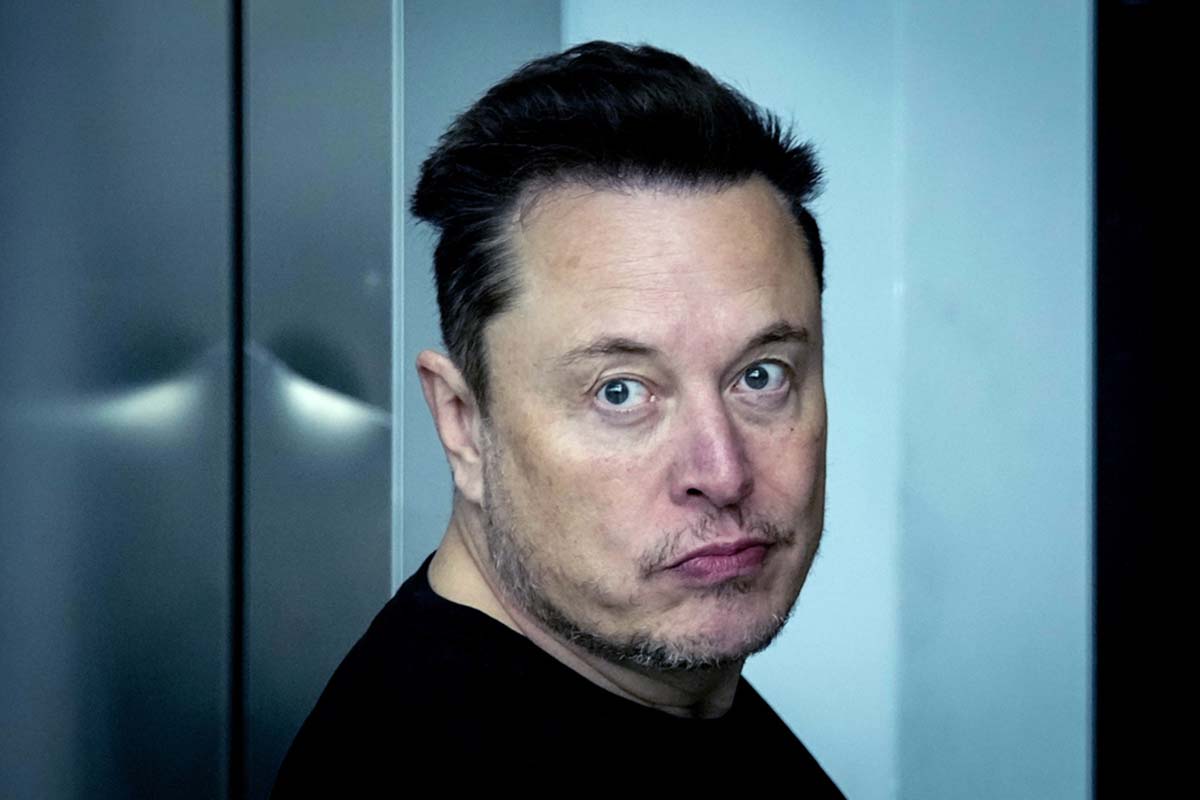
DETROIT: Tesla is asking shareholders to reinstate a $56 billion remuneration package for CEO Elon Musk, which was dismissed by a Delaware judge earlier this year, and to relocate the company's corporate headquarters to Texas.
The proposed changes, set to be voted on by shareholders at an annual meeting on 13 June, could be a harder sell than when it was initially approved in 2018. The electric vehicle manufacturer, based in Austin, Texas, is grappling with declining global sales, a slowdown in electric vehicle demand, an outdated model range, and a share price that has plummeted 37% so far this year.
In January, Chancellor Kathaleen St Jude McCormick ruled that Musk is not entitled to the significant stock compensation that was to be granted over a decade.
Ruling on a lawsuit from a shareholder, she nullified the pay package, stating that Musk essentially controlled the board, rendering the process of implementing the compensation unfair to stakeholders. "Musk had extensive ties with the individuals tasked with negotiating on Tesla's behalf," she noted in her ruling.
However, in a letter to shareholders released in a regulatory filing on Wednesday, Chairperson Robyn Denholm stated that Musk has delivered on the growth they were seeking at the automaker, with Tesla meeting all of the stock value and operational targets in the 2018 package that was approved by shareholders. Shares have risen 571% since the commencement of the pay package.
"Because the Delaware Court questioned your decision, Elon has not been compensated for any of his work for Tesla for the past six years that has contributed to significant growth and shareholder value," Denholm wrote. "That strikes us — and the many shareholders from whom we have already heard — as fundamentally unfair, and inconsistent with the will of the shareholders who voted for it."
In the filing, Tesla stated its intention to appeal the decision. If shareholders approve the new package, disclosure and procedural deficiencies and breaches of the board's fiduciary duty detailed by McCormick should be rectified, the filing said.
However, Tesla stated that shareholders may still challenge the ratification vote. Even if it does pass, Tesla stated it may not fully resolve the matter and a Delaware court could find the ratification itself is not fair to shareholders.
If shareholders don't ratify the plan, Tesla stated it may need to negotiate a replacement with Musk. That may take a significant amount of time and expense "in light of the criticism" detailed in the Delaware suit.
Tesla is opting for ratification, instead of trying to negotiate a new package with Musk, which the company stated would likely need to be of similar magnitude to the previous package to retain him.
Because it's attempting for ratification instead of a new plan, Tesla stated it "did not substantively re-evaluate the amount or term" of the package and did not hire another compensation consultant to weigh in on it.
In the 2018 plan, Musk would not receive a salary or cash bonuses. Instead, he was to receive only stock options, and only if the company met certain thresholds. It would need to increase its total market value by certain amounts, whilst also hitting targets for revenue and pretax earnings, among other items.
Many CEOs at large companies need to hit targets to receive a significant portion of their potential compensation. That's to encourage decisions that benefit the company and shareholders at large. But Musk was unusual in having all of his pay dependent on such measures.
When the company's board drew up the compensation plan, it stated it believed the hurdles would be challenging to meet. Some outsiders agreed.
However, the shareholder plaintiff in the Delaware suit alleged the company's proxy incorrectly characterised all the milestones that triggered vesting in the stock options as "stretch" goals, even though internal projections indicated that three operational milestones were likely to be achieved within 18 months of the shareholder vote.
In 2018, the board stated that it believed "many of Tesla's previous successes were significantly driven by Mr. Musk's leadership." They wanted to motivate Musk to "devote his time and energy" to the company, despite his interests in other companies.
Erik Gordon, a lawyer and business professor at the University of Michigan, suggested that since Tesla would still be a Delaware corporation at the time of the vote on the package, shareholders could still challenge it in Delaware courts. However, because Tesla disclosed facts in the proxy about the board's ties to Musk, he expected Tesla to win. "If the disinterested shareholders are properly informed and they vote in favour of it, the court actually has nothing to do," Gordon said. He added that Delaware courts "want the corporations to disclose and let the shareholders decide."
Musk may not see much legal benefit from moving Tesla's corporate home to Texas, as the law governing executive pay is similar to Delaware's, according to Gordon. "There's no Texas case that tells you if this had happened in Texas you'd have gotten a different result."
Tesla posted record deliveries of more than 1.8 million electric vehicles worldwide in 2023, but the value of its shares has eroded quickly this year as EV sales soften. The company said it delivered 386,810 vehicles from January through March, nearly 9% fewer than it sold in the same period last year. Future growth is in doubt and it may be a challenge to get shareholders to back a substantial pay package in an environment where competition has increased worldwide.
The proxy statement filed with the Securities and Exchange Commission does not address Musk's demand to own 25% of Tesla shares for him to pursue artificial intelligence and robotics at the company. At present, he owns 20.5% of the company.
In January, Musk challenged the Tesla board in a post on X, the social media platform he now owns, to come up with a new compensation package. Unless he gets 25%, he wrote that he'd prefer to build products outside of Tesla, apparently with another company.
Wedbush analyst Dan Ives, who is normally bullish on Tesla, said in an interview that the filing doesn't address multiple issues including Musk's future compensation. "It's the elephant in the room because Musk has threatened over X, and it's been a massive overhang" for Tesla stock, Ives said.
Musk, he said, needs to commit to being Tesla CEO for three to five years and developing artificial intelligence with the company. When Tesla announces first-quarter earnings next week, Musk needs to spell out growth plans, including the status of the Model 2, a small EV that costs about $25,000, Ives said. Otherwise, dark days lie ahead, he said. "There's a feeling like the plane is crashing into the ocean and the board is focused on their own salted peanuts," he said.
At the time of the Delaware court ruling, Musk's package was worth more than $55.8 billion, but the stock slide has cut that to $44.9 billion at the close of trading on Friday, Tesla's filing said.
Starting last year, Tesla has cut prices by as much as $20,000 on some models. The price cuts caused used electric vehicle values to drop and clipped Tesla's profit margins.
This week, Tesla said it was letting about 10% of its workers go, about 14,000 people.
Shares of Tesla Inc closed down about 1% on Wednesday.
By RSS/AP






